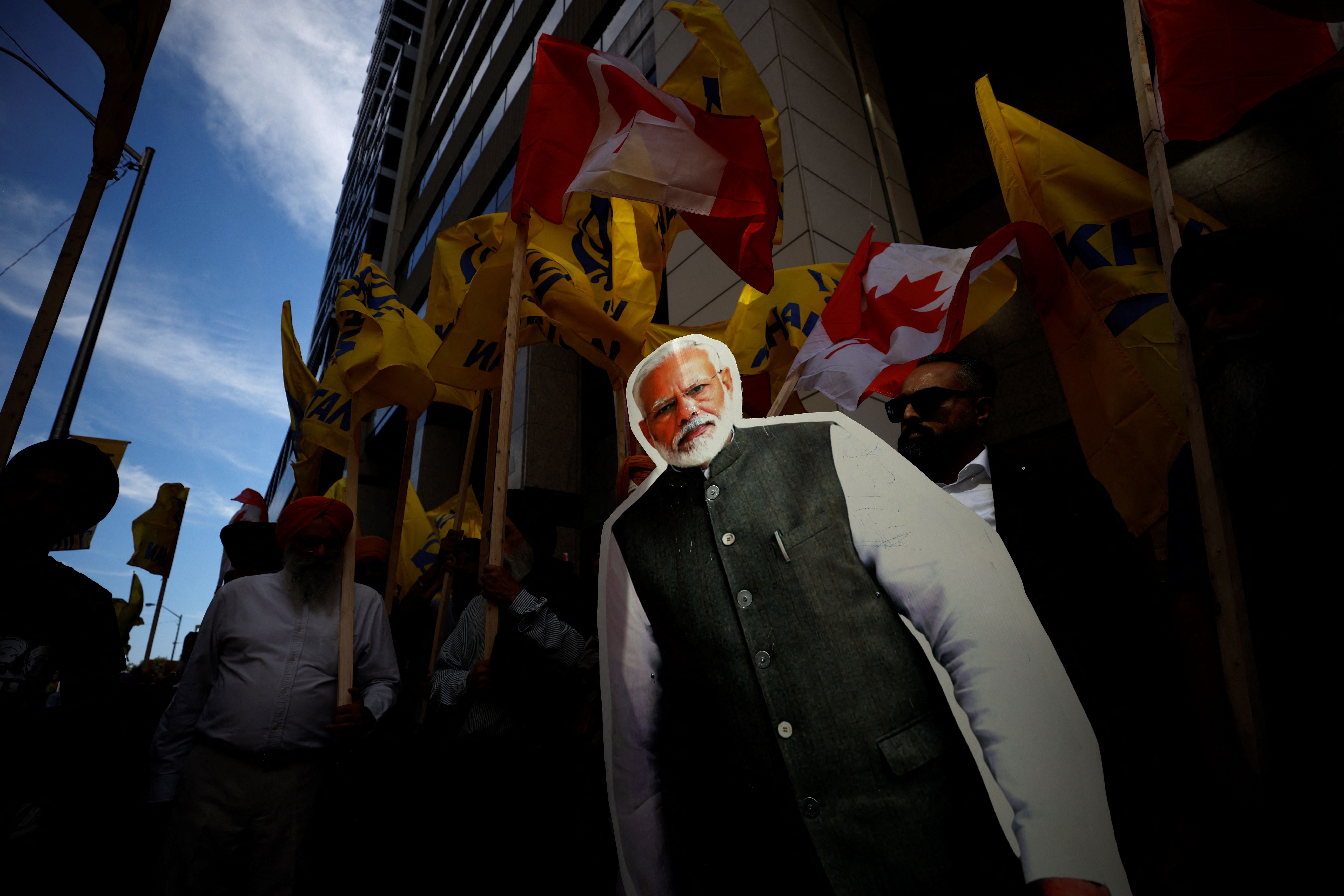India ‘weaponising global anti-terror fund’ to crack down on civil society groups, Amnesty says
More than 20,600 NGOs had their licences cancelled in India in last ten years, Amnesty says

Your support helps us to tell the story
From reproductive rights to climate change to Big Tech, The Independent is on the ground when the story is developing. Whether it's investigating the financials of Elon Musk's pro-Trump PAC or producing our latest documentary, 'The A Word', which shines a light on the American women fighting for reproductive rights, we know how important it is to parse out the facts from the messaging.
At such a critical moment in US history, we need reporters on the ground. Your donation allows us to keep sending journalists to speak to both sides of the story.
The Independent is trusted by Americans across the entire political spectrum. And unlike many other quality news outlets, we choose not to lock Americans out of our reporting and analysis with paywalls. We believe quality journalism should be available to everyone, paid for by those who can afford it.
Your support makes all the difference.The Indian government has exploited the assessment reports of a global money laundering and terrorist financing watchdog to target “legitimate human rights work of civil society”, a new report by Amnesty International said.
The country has abused recommendations provided internationally by the Financial Action Task Force (FATF) to crackdown on terrorism financing and money laundering under the Narendra Modi administration, the international human rights group said in its latest report on Wednesday.
This has been done under the “guise of combating terrorism”, Amnesty International’s India chair Aakar Patel said.
“The Indian government has leveraged the Financial Action Task Force’s recommendations (from 2010 and 2013) to tighten its arsenal of financial and counter-terrorism laws which are routinely misused to target and silence critics,” he said in a statement.
India should be held accountable by the FATF “for the persistent weaponisation of its recommendations”, he added.
Indian officials have not issued an immediate response on the charges in the latest report by Amnesty International.
Human rights groups and political opponents have accused Mr Modi of stifling dissent and introducing divisive policies that discriminate against Muslims and other minorities, in addition to the conviction of his political opponent Rahul Gandhi.
Authorities in India have brought in draconian laws in a coordinated campaign to stifle the non-profit sector, the findings revealed.
A total of 37 countries are part of the FATF, including the United States, and two regional groups, the Gulf Cooperation Council and the European Commission. Currently, only Iran and North Korea are blacklisted.
Data by Amnesty showed that more than 20,600 NGOs have had their licences cancelled in India in the last ten years, with nearly 6,000 of these cancellations seen since the beginning of 2022.
Indian officials have also misused these laws to bring “terrorism-related charges and, amongst other things, to prevent organisations and activists from accessing essential funds”, Amnesty said.
In its latest findings, Amnesty International found that 11 out of 16 NGOs in India working on issues of minorities, marginalised groups and climate change confirmed arbitrary renunciation of their foreign contribution licences through suspensions, cancellations and non-renewals.
This was done on the grounds of vague reasons by the Indian authorities who accused them of “bringing disrepute to public institutions”, working against public or national interest” or alluding to their human rights work.
Most of the NGOs in India have reduced their staff by 50 to 80 per cent. “Almost all our programmes have been shut down… (We are) surviving just to fight the legal cases that have been filed against us,” an activist told Amnesty International.
The latest findings also stated that Indian authorities have ignored calls by United Nations’ special rapporteurs terming India’s own anti-terrorism law Unlawful Activities (Prevention) Act as they flagged its provisions to be in violation of FATF’s guiding principles.
The Indian law’s provisions also violated international human rights law and standards, they said.
“The Indian authorities have ignored all such calls and have continued to apply these laws in a discriminatory manner against dissenting voices such as Muslim student activist Umar Khalid, Kashmiri human rights activist Khurram Parvez, journalist Irfan Mehraj and 16 others (in the Bhima Koregaon case), ten of whom continue to be detained since 2018 without trial on allegations of ‘funding terrorism’, amongst other charges,” the Amnesty International said.
One such law under the Modi administration – Prevention of Money Laundering Act – has been used to target Amnesty International, forcing them to halt operations in the country in September 2020.
“The FATF must not allow these laws to be used by the Indian authorities to systematically erode the rights to freedom of association and freedom of expression in the country, particularly of civil society actors and religious minorities,” Mr Patel said.





Join our commenting forum
Join thought-provoking conversations, follow other Independent readers and see their replies
Comments